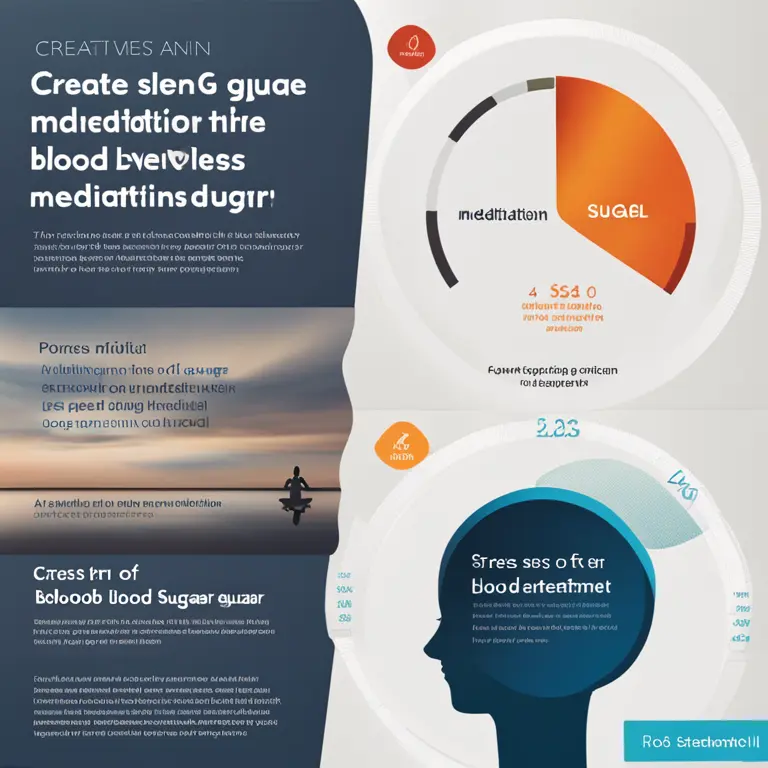
Meditation Techniques to Aid Diabetes Management
Explore effective meditation practices to help manage diabetes, reduce stress, and promote overall well-being.
article by Hina Kurosawa
Introduction to Meditation and Diabetes
With an increasing global prevalence of diabetes, patients are often seeking complementary methods to manage their condition alongside conventional treatments. Meditation has emerged as an effective tool for not just managing stress but also potentially improving health outcomes for individuals with diabetes. This article delves into the meditation techniques that can be particularly beneficial for those looking to maintain balance in the face of this chronic illness.

Meditation's Impact on Blood Sugar Levels
Several studies suggest that high levels of stress can exacerbate blood glucose levels. Through meditation, individuals can engage the body's relaxation response, which may help stabilize blood sugar. Techniques like mindfulness meditation have been shown to reduce the body's stress response, potentially leading to better glucose control and an enhancement of overall diabetes management.

Starting with Mindfulness Meditation
Mindfulness meditation is a great starting point for beginners. It involves paying attention to the present moment without judgment. Practicing mindfulness can help increase awareness of food choices, satiety, and eating triggers, which are crucial for managing diabetes. Simply find a quiet space, focus on your breath, and observe your thoughts and sensations without engagement—a practice ideal for creating a more mindful approach to health.

Guided Visualization for Inner Harmony
Guided visualization can take the practice a step further by helping individuals with diabetes imagine their bodies functioning optimally, from insulin production to cellular uptake of glucose. This type of meditation involves listening to scripted audio that leads the mind through a peaceful journey, with the goal of eliciting physiological changes that support health, such as improved insulin sensitivity.

Yogic Practices for Stress and Glucose Control
Yoga incorporates aspects of meditation and has been shown to be beneficial for those with diabetes. The physical postures, breathing exercises, and meditative practices can work together to reduce stress, lower blood pressure, and improve glycemic control. Integrating short yoga sessions into daily routines can result in better stress management and diabetes symptoms.
Integrative Body-Mind Training (IBMT)
Integrative Body-Mind Training (IBMT) is a meditation technique that combines traditional Chinese medicine principles with contemporary relaxation methods. Research suggests that IBMT can improve emotional regulation, which in turn may help manage the psychological aspects of living with diabetes. A regular practice of IBMT can promote a harmonious state of mind, beneficial for overall well-being.
Transcendental Meditation for Deep Rest
Transcendental Meditation (TM) is a form of silent mantra meditation that aims to induce a state of relaxed awareness. It has been studied for its impact on heart health and shows promise in reducing the risk factors that are often associated with diabetes, such as hypertension and cholesterol levels. TM’s deep physiological rest could be a powerful addition to a diabetes care plan.
Moving Meditation: Tai Chi and Qigong
Tai Chi and Qigong are forms of gentle, moving meditation that can help in improving balance, flexibility, and muscle strength. For individuals with diabetes, these practices provide the added benefit of helping with circulation and stress reduction. Both are low-impact exercises and serve as a holistic way to engage both the body and mind in disease management.
Creating a Meditation Routine for Diabetes
Establishing a regular meditation routine is paramount for reaping the benefits. Starting with as little as five minutes a day and progressively increasing the duration can make meditation a feasible part of diabetes management. Encouraging consistency over intensity, patients can find the technique that best suits their lifestyle and preferences.
Conclusion: Meditation as a Supportive Strategy
As a non-invasive and cost-effective intervention, meditation complements traditional diabetes treatments. With no adverse side effects, it serves as a promising approach to enhancing quality of life for those with diabetes. When combined with medication and dietary adjustments, meditation can be a key component in the holistic management of diabetes.
Published: 2/12/2024
Modified: 2/12/2024
More predictions
Come back here soon to learn more about yourself and your future


Diverse Meditation Techniques for Inner Tranquility
Explore a concise guide to diverse meditation techniques designed for fostering inner peace and mindfulness in the modern world.


Meditate Away Anxiety: Simple Techniques for Calm
Discover practical meditation techniques designed to ease anxiety and cultivate serenity in everyday life.


Varieties of Meditation: A Comprehensive Guide
Discover the diverse meditation techniques to enhance your mental wellness and spiritual growth. Delve into this guide for insight into the different paths of mindfulness.